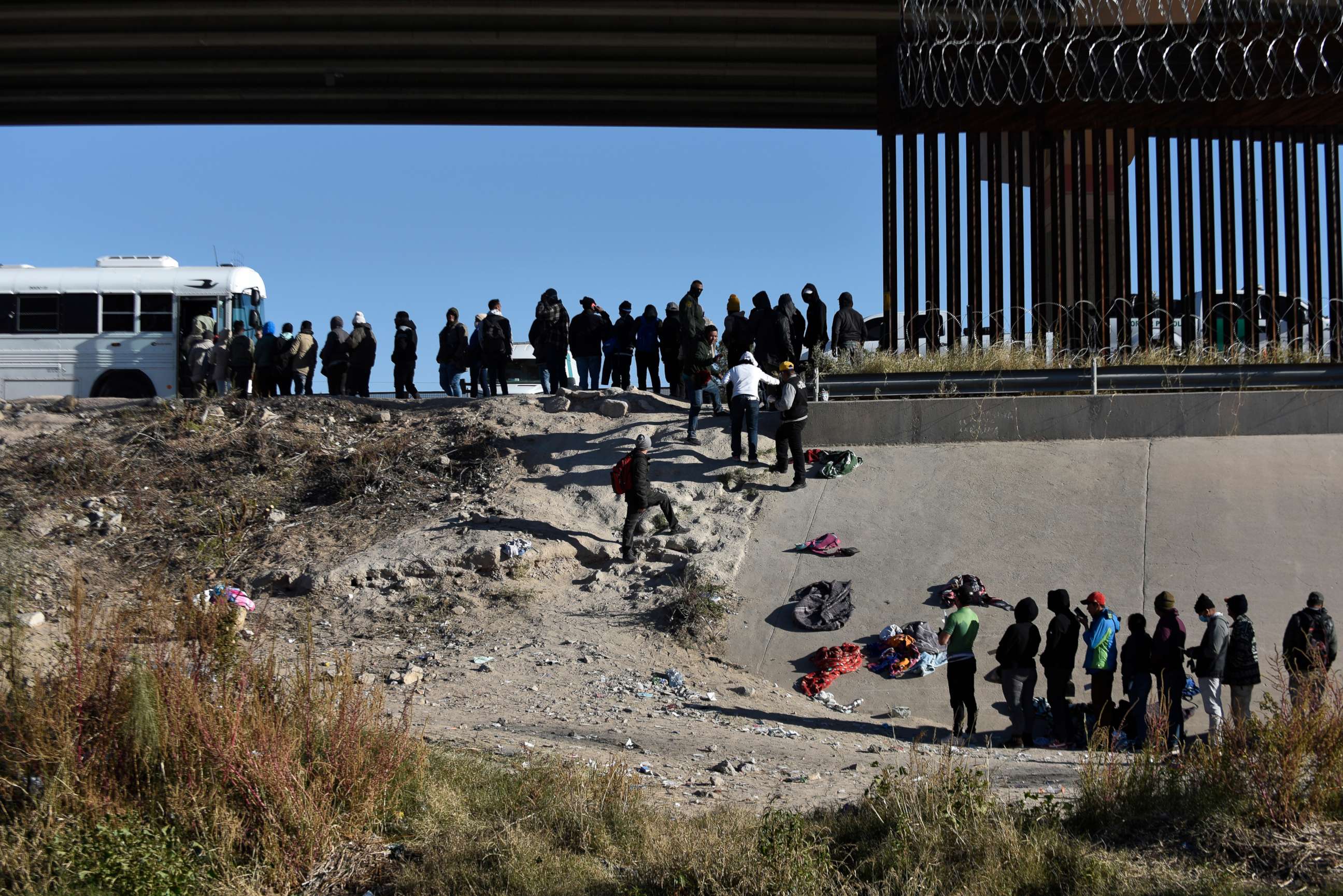Migrant surge at southern border prompts ramped up enforcement
A wave of unauthorized migrants who entered the U.S. through El Paso in recent days has prompted immigration authorities to ramp up enforcement and processing.
Over the weekend, authorities in El Paso stopped migrants 2,460 times a day on average, according to U.S. Border Patrol El Paso. That's compared to 2,150 since the beginning of December and 1,700 to 1,800 per day in the weeks prior. A similarly high rate of migration into El Paso was seen last October, a Customs and Border Protection official said Monday.
U.S. Customs and Border Protection officials descended on central El Paso and began transferring some migrants out of the area to avoid overcrowding.
Nearly 500 migrants were released on Sunday with orders to report back to authorities to continue an assessment of their immigration status, Border Patrol said in a statement.

One Homeland Security official described the situation as an "absolute mess" and multiple Border Patrol agents who spoke to ABC News expressed concern about the possible discontinuation of Title 42 expulsions, a Trump-era border restriction ordered a the beginning of the pandemic. Following a months-long legal battle that is yet to determine the final outcome for Title 42, a federal judge set a Dec. 21 deadline to repeal the protocols.
A number of Republican-led states have banded together in an attempt to keep the pandemic-justified restrictions and push back the Dec. 21 repeal date, despite a decision from the Centers for Disease Control and Prevention to end the practice last spring.
"El Paso Sector continues to have constant communications with city and county leaders to address the migrant influxes and is also currently transporting migrants to El Paso County facilities when operationally feasible," a Border Patrol spokesperson said in a statement. "The El Paso Sector continues to process individuals safely, efficiently, and effectively at the border and continues to expel migrants under Title 42 authority."
Homeland Security Secretary Alejandro Mayorkas is traveling to the border this week and is expected to meet with El Paso Border Patrol agents.
The Department of Homeland Security has worked to shore up immigration processing capacity across the southwest with new temporary holding facilities and a work force that is often called on to shift its focus to various regions experiencing high volumes of unauthorized migration.
Over the last few months, on the opposite end of the Texas-Mexico border, the Rio Grande Valley area has moved from first place to third for total Border Patrol apprehensions. But many of the resources remain in place which makes the sector uniquely prepared to handle a migrant influx. Processing centers have been built out and beefed up, and the sector – which includes wide stretches of remote land -- is familiar with processing large numbers of people.
"It's already here. Look at the vast numbers increased in the past weeks; especially the last few days. Those numbers are unsustainable and that's with Title 42 in place. So, we can only imagine what will happen when it's lifted," said El Paso Deputy City Manager Mario D'Agostino.
El Paso city and county leaders are in constant contact with FEMA about this emergency. They say they are currently spending their own funds to respond and are waiting for $7.25 million in reimbursement from the federal government.
Preparing for the likelihood of Title 42 going away, El Paso estimates it will take at least $4.7 million to respond to this issue from January through March of next year. They say this would allow them to serve approximately 600 migrants a day, help with transportation of 300 daily and bring on more workers or pay for overtime for workers needed. They've asked for this money in advance, but say they have not heard anything from FEMA yet.
City leaders say they fear they will be between a rock and hard place next week if Title 42 goes away and are hoping the courts will give them more time. Looking forward, they say their biggest worry is transportation of migrant with the holidays here and their small airport and bus station capacity being limited.
The city is talking about safely busing migrants to transportation hubs like Denver or Dallas to help get families to their final destinations.




